|
This past July, Renata and I travelled to Toronto, Canada to attend the 2019 Social Media and Society Conference. It was my very first experience traveling with an undergraduate student to a conference and to be honest I had no idea what to expect. It turns out that I am the luckiest, because Renata was the best conference buddy EVER! The primary purpose of our presence at the conference was to present our research poster (which I will describe a bit more later in this post). However, attendance to the conference was also a professional development opportunity for Renata and me. During the conference we attended a few workshops (i.e., social media network analysis with NodeXL and "linking" social survey and social media data). The "linking" workshop was particularly interesting as we were able to better grasp how much public data is available through some social media platforms. We were actually expose to "Venmo" data, which is a platform that Renata uses. After going to the workshop we had conversations about the use and availability of public data. We also shared our concerns about the lack of privacy and awareness of the users (many users probably do not know that their transactions and messages shared through the Venmo platform can be "collected"). We also attended the two keynote sessions. Both were absolutely amazing! Funny story: the first keynote was about how teenagers use social media (Not So Social, Not So Networked: Teens’ Perspectives of Privacy and Trust on Social Media by Dr. Valerie Steeves). Many of the comments made by the keynote speaker were practiced by Renata on her own social media use. She (Renata) was fascinated by the fact that the keynote speakers and other researchers dedicate their investigations to learn more about how her generation uses social media. The second keynote speaker was focused more on "content moderation" in social media platform (Custodians of the Internet: Platforms, Content Moderation, and the Hidden Decisions That Shape Social Media by Dr. Tarleton Gillespie). For the regular sessions, we aimed to focus on education-related social media presentations. However, we also attended several sessions that discussed methodologies to help analyze social media data. As I mentioned earlier, we presented our research poster (titled: Keeping streaks and doing it for the gram: Undergraduate students participation in their most versus least used social media). Several attendees stopped by to learn more about our project and ask questions related to findings. Renata did a great job presenting and discussing our poster. It was a moment of joy, for me, to see her very eloquently sharing the project that we had worked on for about a year. One of the most interesting conversations that we had, during the poster session, was with a Canadian attendee of the conference. We started discussing how Instagram had pilot-tested removing the "like" or "heart" button in the Instagram account of Canadian users. We discussed how those "likes" have an effect on the users. Then, Renata shared that it is not uncommon for several of her college classmates to post a photo to Instagram, wait a few minutes to see if anyone liked it, and, if there are a low number of "likes", purchase "likes" through the Instagram app. I don't know why, but I was completely shocked by this behavior. I can understand organizations doing this for marketing purposes, but college students? It just tells me a lot about the pressure to be "liked" on social media that individuals, in this case young adults, must feel.
Overall, this was a great experience! The sessions and conversations gave me food for thought. I am still fascinated by how much we are learning about social media use and participation, but blow away by how much more there is to learn. Dr. Enilda Romero-Hall
0 Comments
So, this time last week I was at the 2019 Annual Meeting of the American Educational Research Association. It is one of the largest conference that you can possibly attend related to education research. About 15,000 education researchers attend every year. This year the conference was hosted in my hometown, the beautiful city of Toronto! I was really excited for the conference this year. I was planning to present along with an alumni of the UT IDT program who is now a doctoral student at Old Dominion University, Leonor Adams. Leonor and I presented on the formative assessment of ERAS (an Experiential Role-Playing Aging Simulation). This is work that was conducted along with Megan Osgood (an undergraduate student at The University of Tampa. ERAS is now been re-designed using a different software. I am working with two instructional design interns, Andrea Fonseca and Erika Petersen (graduate students at the UT IDT program) to transition the content to the new platform. In addition to this presentation, I also presented the design case of ERAS in a roundtable presentation. This was co-author with Dr. Renee Patrick (UT psychology department) and Gul Sahin (alumni of the UT IDT program). The design case of ERAS is now in press in the International Journal of Designs for Learning. We are expecting it to be publish open access in a few months. Overall, a great conference! It is always wonderful catching up with colleagues. Also, it was great to be Toronto. Look forward to future AERA conferences.
Dr. Enilda Romero-Hall
This past week, Dr. Romero-Hall was invited as a guest speaker in the Visions of Education podcast series. We are sharing the podcast here for anyone who is in the education field and wants to subscribe to the podcast. Also, we want to share the link to the podcast episode. Dr. Romero-Hall discussed some of her recent research related to #SocialMedia in #HigherEducation:
This is a one of five podcast episodes that focus on #SocialMediaEd discussions leading up to the SITE conference next week in Las Vegas, NV.
You can click on this link to access a full list of resources (articles, books, and videos) mentioned in podcast episode: https://visionsofed.com/2019/03/10/episode-108-social-media-in-higher-education-with-enilda-romero-hall/ This past weekend The University of North Florida hosted the Florida Undergraduate Research Conference (FURC). Many undergraduate students from The University of Tampa presented topics in which they engage on research. One of these students was Renata Sindicic, who has been working with me and collaborating in research since last August 2018. I feel extremely proud of Renata, #FURC2019 was her very first time presenting in a conference! She worked hard on the design of the poster and practice her presentation prior to the event. I am thankful to have her as part of the research team! Renata presented preliminary results of our research related to the use of social media by undergraduate students.
We gathered today to celebrate the end of the semester (all the work that has been done this Fall 2018 term) and the upcoming holidays. I am so lucky to work with Linlin and Renata. Finding a group of people that you can work with "smoothly" is often a challenge. These ladies speak the same "language" I do (they know how to decipher my emails) and they get my schedule. They are also eager to learn and are constantly challenging themselves. They are not scared to asked for guidance but can also work independently. This holiday season, I am thankful to work with such a wonderful team!
|
Archives
September 2019
Categories |
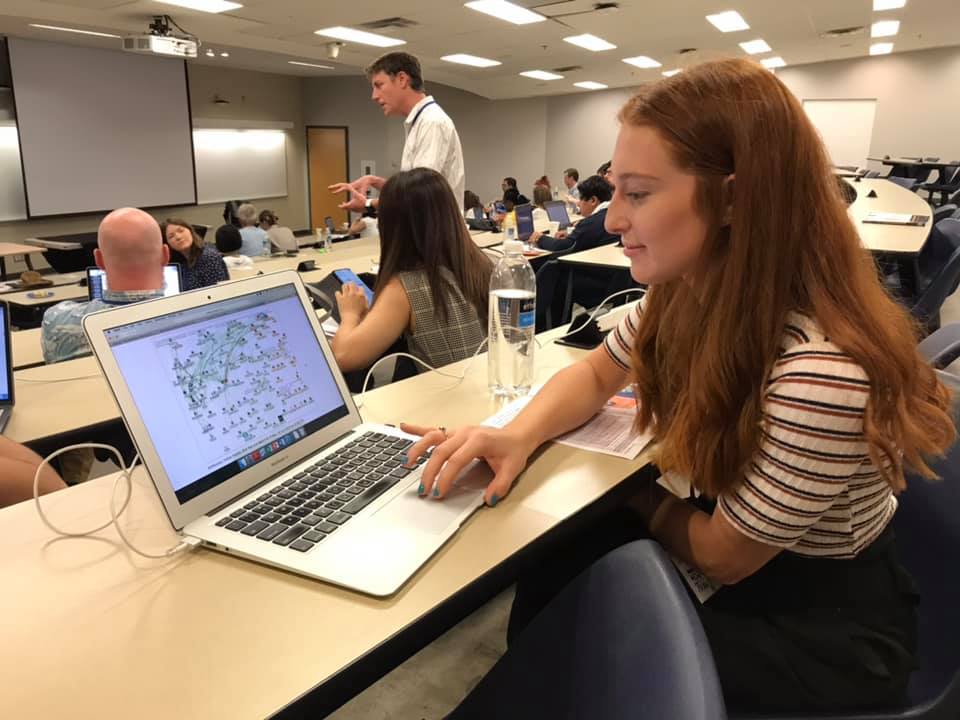
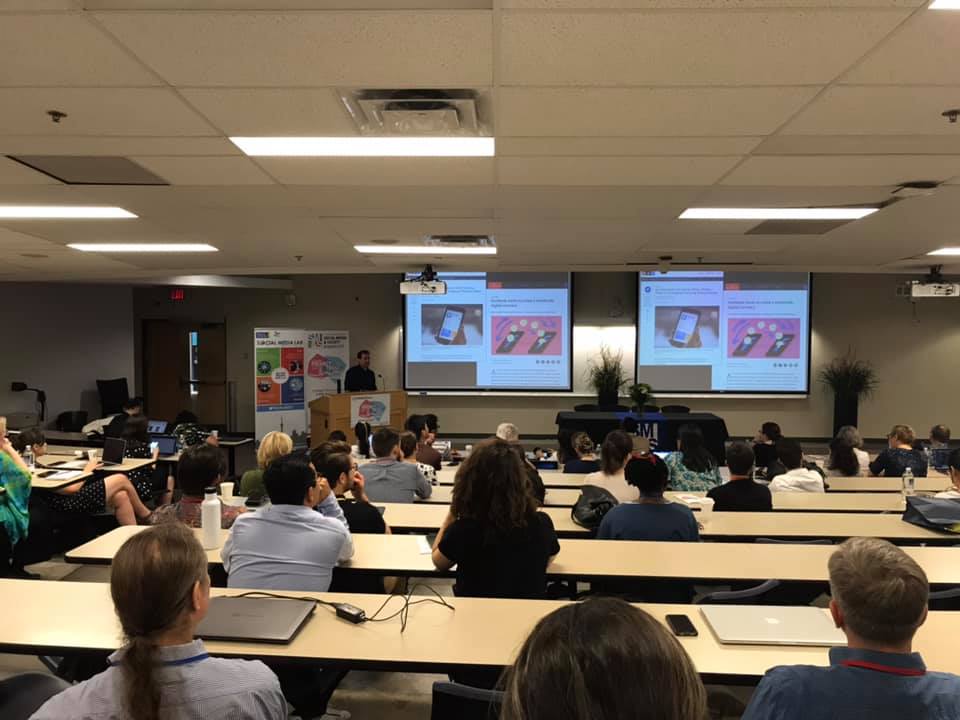
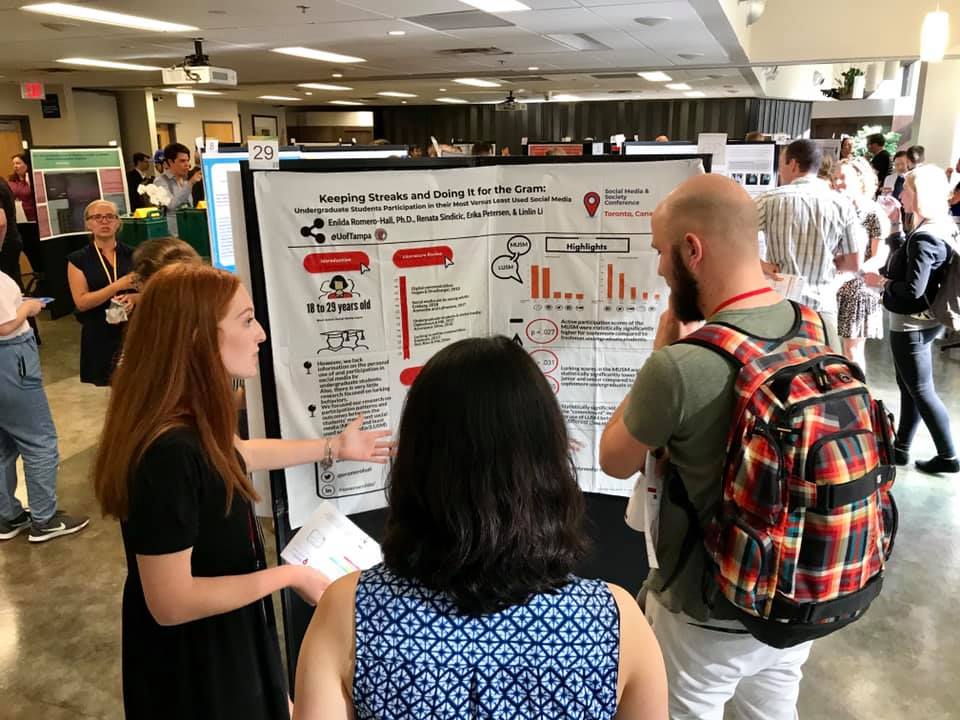
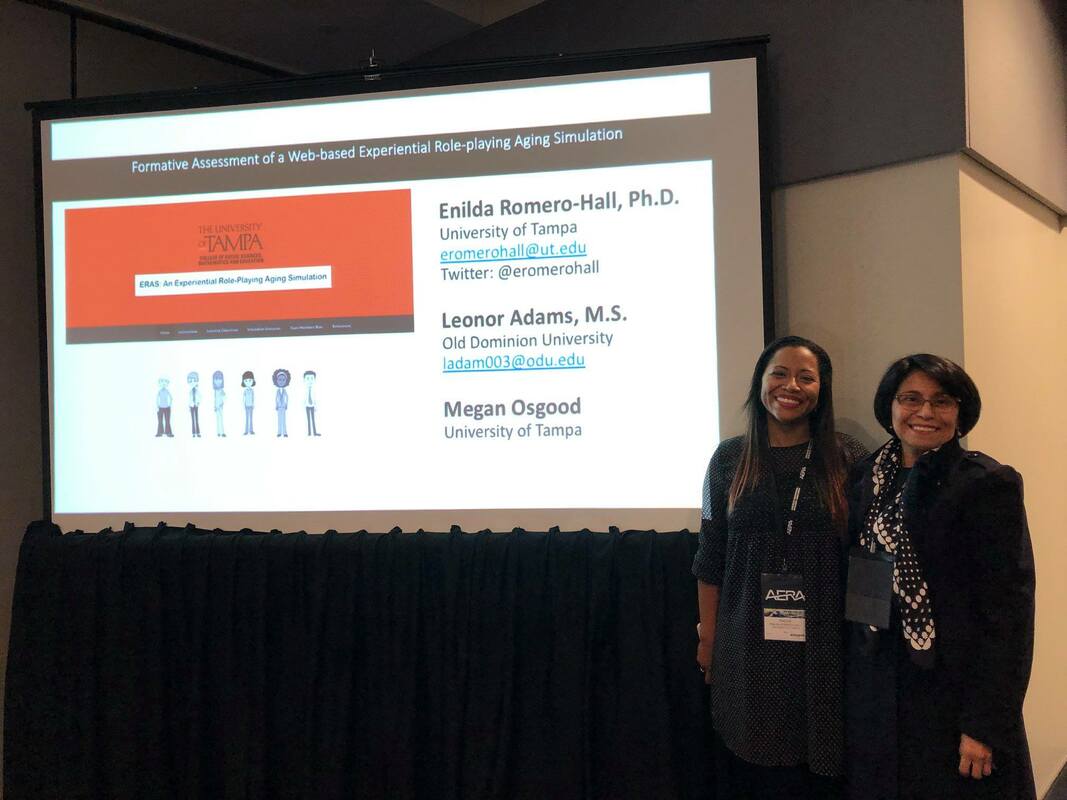
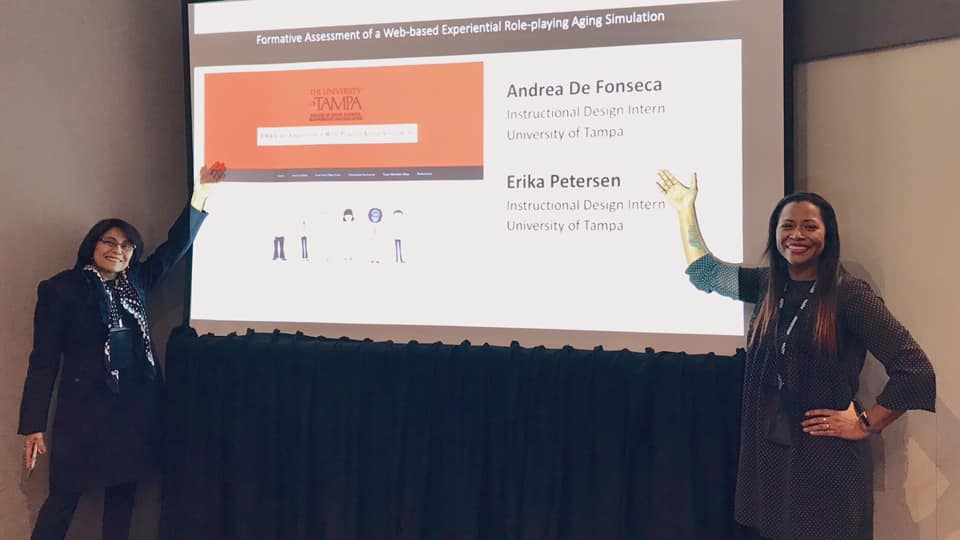
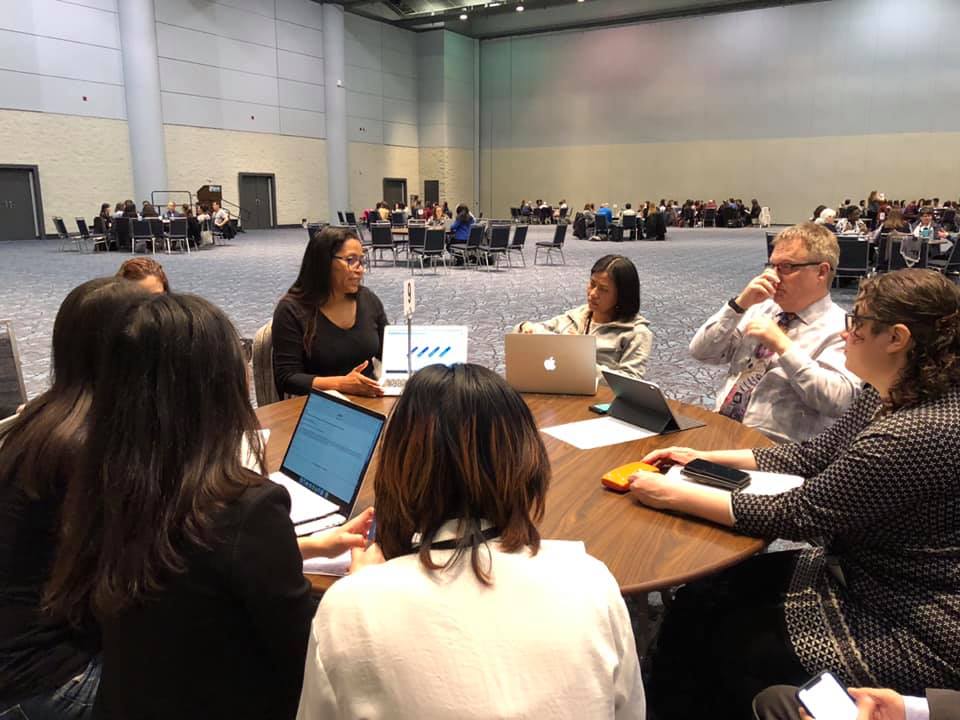
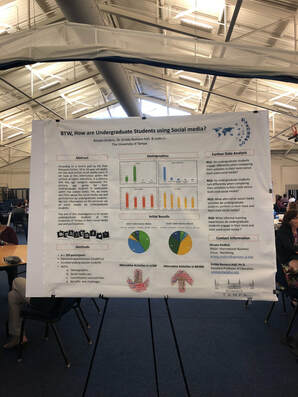
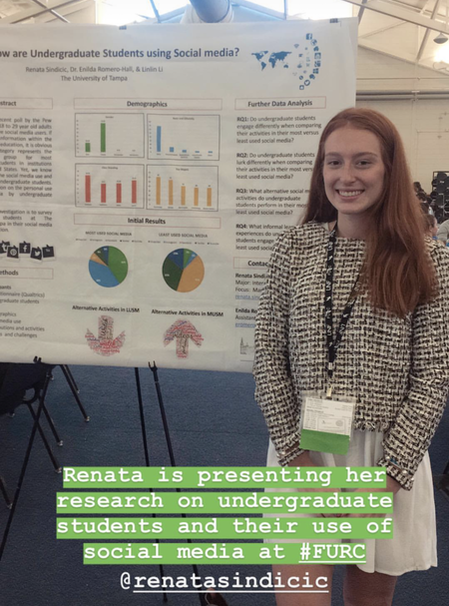
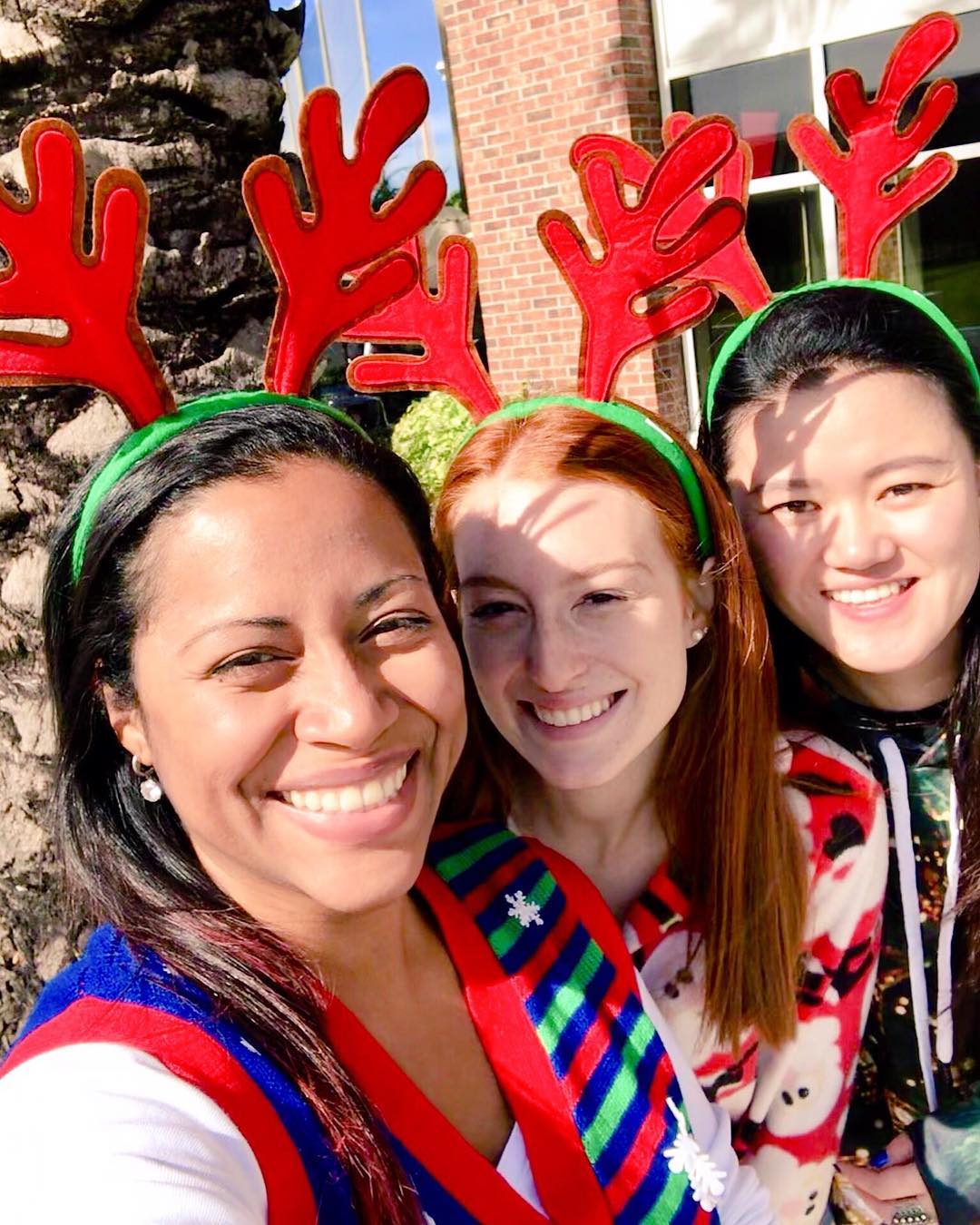
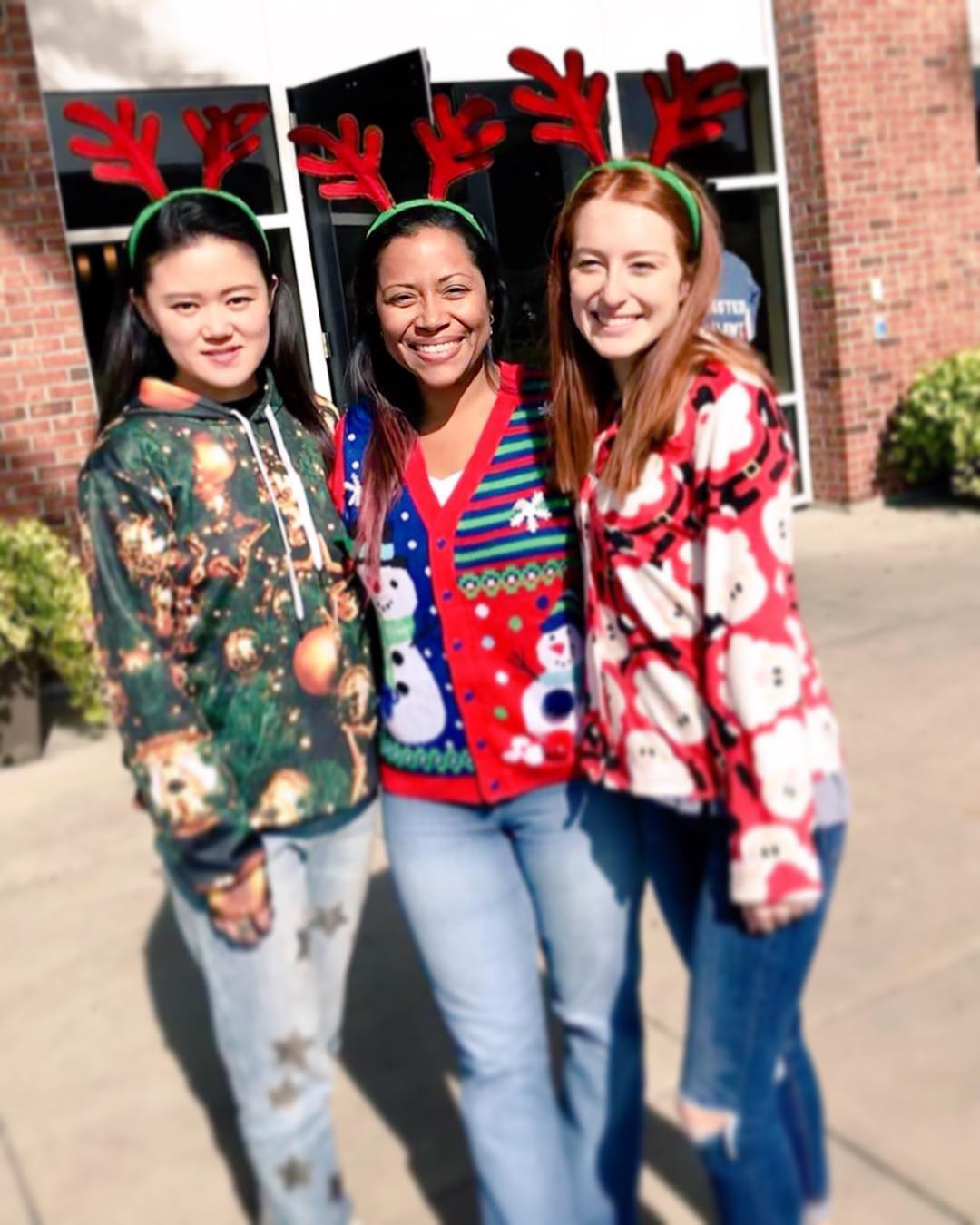
 RSS Feed
RSS Feed
